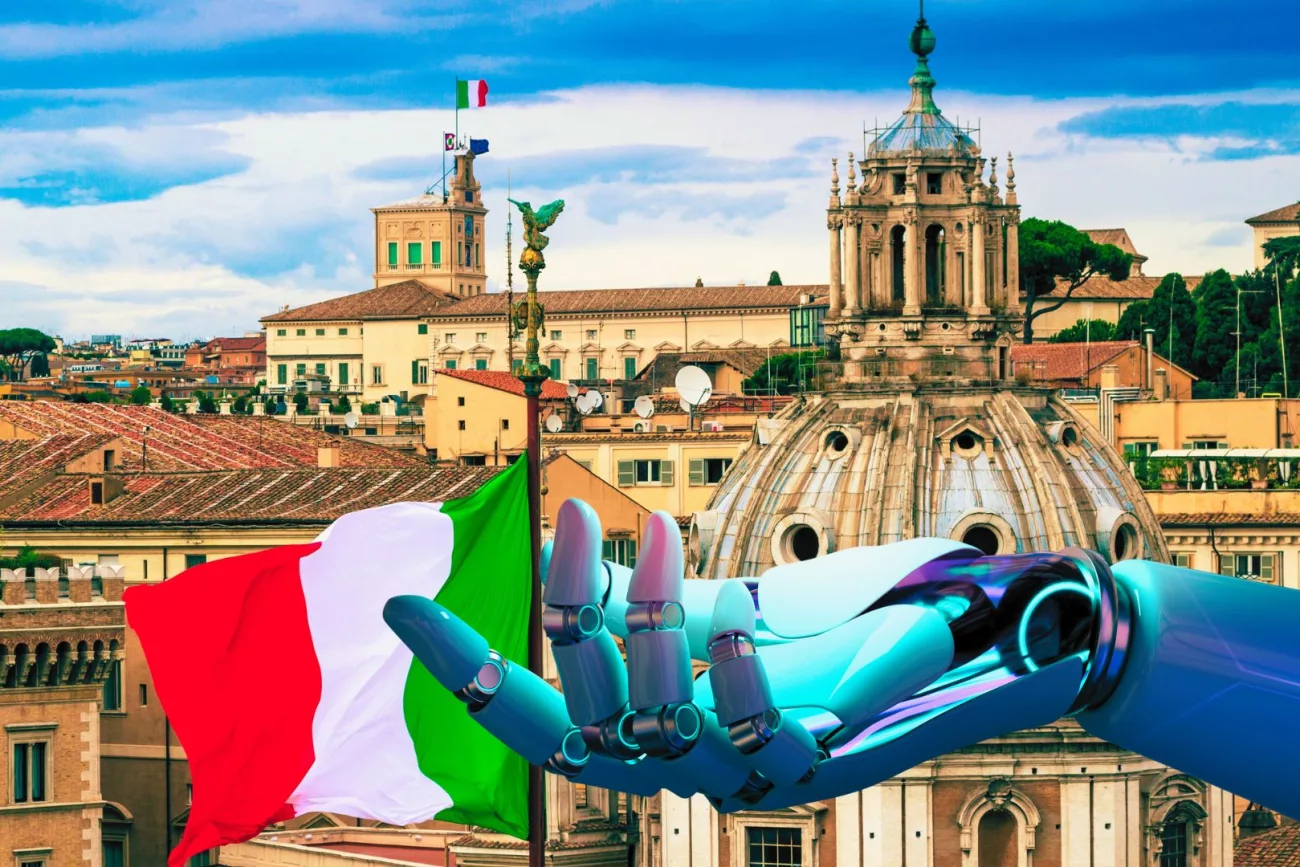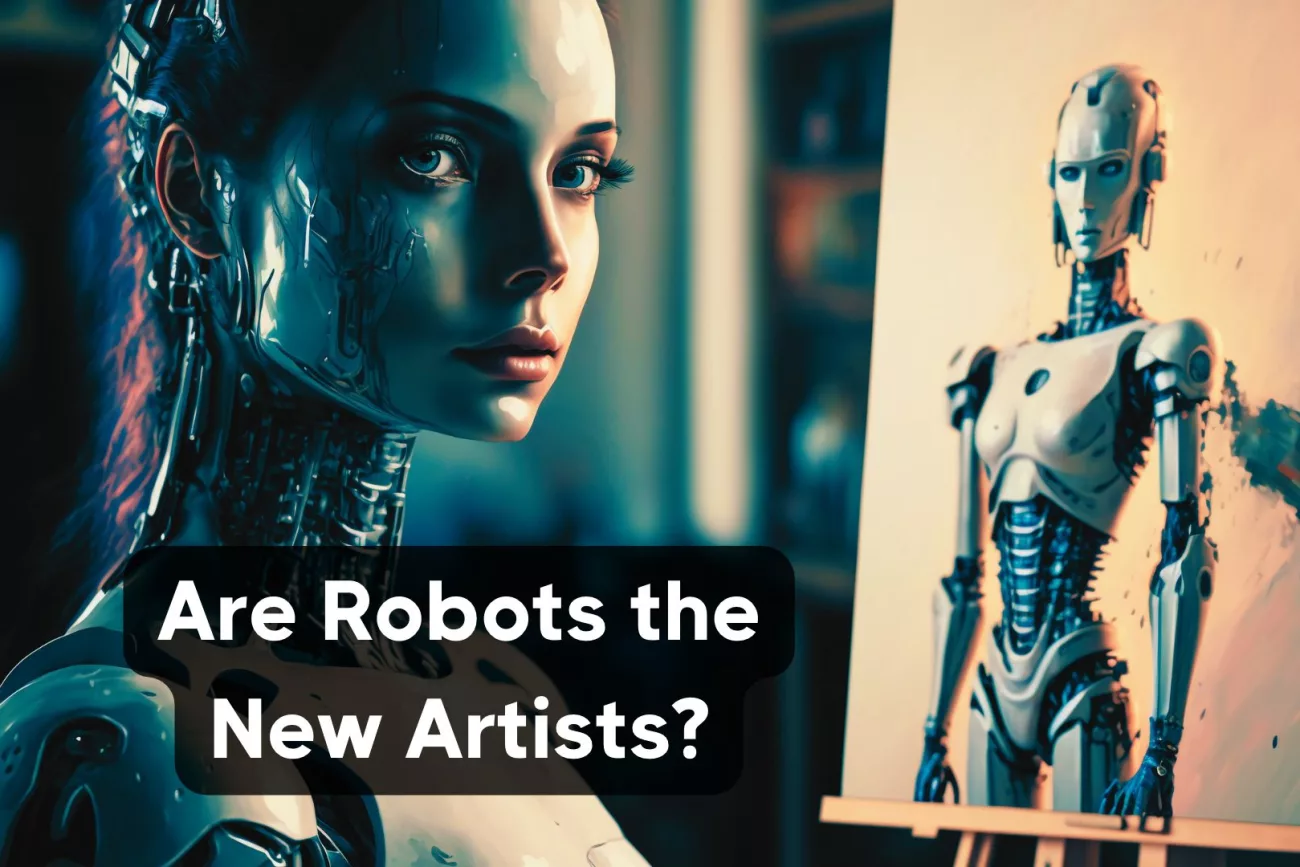
Key Points:
- AI’s rapid advancement promises significant changes in the job market, including the legal profession.
- While AI can automate numerous tasks, the core of lawyering, which requires human judgment and emotion, remains secure.
- With AI’s rise, lawyers must adapt by integrating AI tools into their work and understanding its implications for legislation and ethics.
- The future legal landscape will depend on professionals’ agility, adaptability, and forward-thinking approach in embracing AI.
AI & The Legal Profession: Will Our Robes and Wigs Be Automated Away? 🤖⚖️
Hold onto your briefcases and gavels, lawyers! The AI storm is brewing, and it promises to shake, rattle, and roll every corner of the job market. And guess what? The law isn’t immune. Let’s dive into the cold, hard numbers and wonder – what will the future courthouse look like?
A Deep Dive 🤿 Into the Coming Economic Tsunami 🌊
A Blast From the Past – Setting The Scene 🎥
History lesson: Think back to 1995 – a time when dial-up tones were the symphony of the internet and ‘chat rooms’ were the newest rage.
Newsweek dropped an article casting doubt on the future of the web. Oh, how quaint those naysayers seem today. Now, zoom ahead to 2023, and we’re in a landscape where AI doesn’t just browse content – it creates it. Reimagining articles, understanding human nuances, and generating text at lightning speeds, AI has graduated from being a mere concept to becoming an irreplaceable tool. So, for those who scoffed at the digital revolution, the tables have indeed turned.
Surprise, Surprise! Just when we were adjusting our timelines and marking our calendars for AI advancements in the 2030s, the tech world pulled a fast one on us. Those landmarks we earmarked for the distant future? They’re now our present reality.
GPT-4 isn’t just a jumble of letters and numbers; it’s a revolution in AI capability. Corporate behemoths such as Amazon and Microsoft aren’t just dabbling in AI – they’re leading the charge, integrating advanced algorithms into everything from shopping recommendations to enterprise solutions. If you haven’t gotten your golden ticket to this AI soiree yet, you might want to check your mailbox again.
Numbers Game: The AI-facts You Can’t Ignore 📊
Goldman Sachs’ Alarming Alert: It’s not just a mere flutter in the market; it’s a full-blown warning siren. Goldman Sachs, with their finger on the pulse of global finance, has indicated that the AI wave is no ordinary ripple. It’s set to disrupt job scenes across continents, and the numbers are staggering – 300 million jobs are teetering on the edge of AI-led transformation. And while some might be optimistic transitions, others might not land as softly.
McKinsey’s Glimpse into the Future: Trusted for their insightful market analysis, McKinsey has gazed into their proverbial crystal ball and what they see is significant. By 2030, a seismic shift awaits the American job market with at least 12 million folks swapping their career hats, and guess who’s the catalyst? Our dear friend, AI. The tech revolution of the 21st century isn’t just about new gadgets in our pockets; it’s about new roles, responsibilities, and realms in the professional world.
The Silver Lining & The Cloud: AI isn’t the harbinger of a professional apocalypse. In fact, it’s set to pump a jaw-dropping $17-$26 trillion into the global economy. For those maneuvering the corridors of AI patent law or tech consultancy, the future is paved in gold. But let’s not pop the champagne just yet.
As the World Economic Forum highlights, there’s a storm brewing. In the trade-off, 83 million jobs will fade into obsolescence while only 69 million new roles emerge from the AI cocoon. Simple math tells us there’s a shortfall. And that means approximately 14 million individuals will be reevaluating their career paths, hoping to adapt, evolve, and find their place in this new world order.
The Legal Conundrum: Can Lawyers Co-exist with AI? 🤷♂️⚖️
Knocking On the Ivory Towers: If you’re picturing robots in wigs and robes pleading their case in court, reel in your imagination a bit. But, while the core essence of lawyering remains profoundly human, the broader landscape of the profession is undeniably vulnerable to AI’s reach. Gone are the days when automation was a threat solely for the assembly line worker. High-level professionals, even those cloaked in suits and court gowns, need to take note.
Jobs On the Line:
Financial Advising: Remember the days when we relied on human intuition to make stock market predictions? Well, AI doesn’t have ‘intuition’, but with its unparalleled data-processing capabilities, it might just outperform us in reading those fickle market trends.
Writing: Writers, it’s time for introspection. When an AI model like GPT-4 can pen down thoughts seamlessly, the landscape of journalism, content creation, and even creative writing isn’t as secure as we thought.
Research and Development: Humans, with all our ingenuity, have one drawback – we tire. AI doesn’t. No coffee breaks, no eight-hour sleep necessities. Round-the-clock R&D? AI’s got it covered.
Accounting: Crunching numbers, balancing books, forecasting financial trends – isn’t that precisely what AI was built for?
And Yes, Legal Work: For the young lawyer slogging away on document reviews, research, and data processing, AI might seem a blessing. Imagine tools that can filter through years of case law in mere minutes or draft basic legal documents at the click of a button. The lawyer’s role might pivot from ‘doing’ to ‘reviewing’ and ‘strategizing.’
But, here’s the million-dollar question: Can a machine truly grasp the intricacies of legal arguments, the emotional undertones of a client’s plea, or the art of courtroom negotiation? The sentiment is mixed. AI will undoubtedly augment legal processes, but whether it can ever replace the seasoned attorney’s instinct and flair remains a debated issue. Nevertheless, adaptation isn’t a mere choice; it’s a survival strategy.
Strap In, It’s Going to Be a Wild Ride! 🚧🎢
Nostalgia Versus Reality: There’s a touch of romanticism when we think of bygone professions. No one is shedding a tear for the loss of the ‘knocker-upper’ (that human alarm clock) from yesteryears. However, the contemporary AI-driven transformation promises a much more complex, nuanced, and, let’s admit it, rocky transition.
A Call to Arms: It’s not just the blue-collar worker or the tech whiz who needs to be vigilant. The seismic shifts heralded by AI impact everyone, from the corridors of power in governments to the boardrooms of businesses, and the hallowed halls of legal chambers. Preparing for this isn’t just about acknowledging AI; it’s about integrating it, understanding it, and, most crucially, evolving with it.
For the legal eagles, it’s a dual challenge – not only understanding how AI will impact their own profession but also understanding its broader implications for legislation, ethics, and governance. As laws play catch-up with technology, the lawyer’s role will expand from mere representation to shaping the very future of AI governance.
One thing is clear, though – staying static isn’t an option. The future belongs to the agile, the adaptable, and the forward-thinking. So, whether you’re in the courthouse or the boardroom, it’s time to embrace the winds of change.
The Mystical Productivity Paradox: Chasing the Mirage or Reality’s Reflection? 💥
A Historical Riddle:
Back in 1987, a curious observation was made by Robert Solow, “You can see the computer age everywhere but in the productivity statistics.” This provocative statement had us all scratching our heads: Were computers merely glorified paperweights in a rapidly evolving world? Was the digital age a bloated promise?
Pessimist’s Prophecy:
Along came Robert Gordon, with an equally audacious claim. Sporting his “prophet of pessimism” mantle, he ventured that humanity’s most transformative innovations, like the invention of the car and the toilet, were behind us. A dampening prediction indeed! Was Gordon painting a dystopian future, or merely pointing out that the rate of truly groundbreaking innovations had diminished?
A More Optimistic Retort:
But not everyone’s singing the blues. Some experts and analysts argue that we might be on the cusp of an unparalleled wave of innovation. They opine that perhaps Solow’s skepticism was a tad premature, and that the productivity boom from technology, especially with the onset of AI, is just around the corner. Are they mere optimists, or visionaries seeing the future unfold?
How AI is Reshaping Productivity’s Landscape 🤖⚖️
Ready, Set, Go:
Unlike the internet, which tiptoed into our lives over several decades, AI has sprinted to the forefront. From voice assistants in our living rooms to smart algorithms at workplaces, AI hasn’t just arrived—it’s already setting the agenda.
Beyond the Glitter and Hype:
Remember when cryptocurrency was all the rage and dominated headlines? While crypto had its flashy moment, AI is demonstrating a maturity that suggests it’s here to stay. Its evolution isn’t about mere bells and whistles; AI’s metamorphosis is about providing a seamless, intuitive, and transformative user experience. It’s no longer a wild, unpredictable teenager—it’s an accomplished professional in a crisply ironed suit.
The Secret Ingredient:
What makes AI particularly captivating is its synergy with existing technologies. It’s like the dash of spice that elevates a dish from good to extraordinary. Consider the farming sector: Pair tractors with AI and GPS, and suddenly, precision agriculture minimizes weed growth and reduces chemical use. Or take the legal industry: Marrying traditional lawyering with AI’s capabilities can revolutionize research, contract analysis, and client interactions. The potential is not just additive; it’s multiplicative!
As we stand at this crossroads of history, one thing’s certain—while the debate over productivity gains continues, AI is poised to play a pivotal role. Whether it will be the tide that lifts all boats or just another wave in the ocean, only time will tell. But for now, it’s an exhilarating time to be alive and witness technology’s next chapter unfold.
AI’s Track Record: More Than Just Digital Fireworks?
Pedal to the Metal:
In the grand narrative of technological progress, while the internet was lauded for making our planet feel like a cozy global village, AI is garnering accolades for turbocharging processes. It’s not just about connecting points A and B anymore; it’s about the breathtaking velocity at which connections are made. Numerous studies corroborate this perspective, highlighting productivity leaps from 14% to a mind-bending 56% upon the introduction and seamless integration of AI technologies.
Economic Behemoth Unleashed:
Think the numbers are impressive? Here’s a jaw-dropper: Goldman Sachs, the global finance titan, rolled out figures suggesting that generative AI has the potential to swell the global economy by a staggering $2.6 to $4.4 trillion. To put this in context, it’s akin to injecting the entire economic output of the United Kingdom into the global economy. An astonishing feat, if it materializes, redefining the scope and scale of economic growth as we know it.
The Eternal Duel: Hopefuls vs. Skeptics
The Enthusiast’s Anthem:
Erik Brynjolfsson, an ardent believer in AI’s potential, is no stranger to such grand visions of the future. While most of us marvel at a 1.4% annual growth in productivity, Brynjolfsson raises the bar, betting that AI can shatter this perceived ceiling. The economist, armed with data and brimming with optimism, believes that we’re on the precipice of a transformative era, courtesy of artificial intelligence.
A Bold Rejoinder:
Amidst the din of praises, Brynjolfsson seems to have a special message for skeptics, particularly the likes of Gordon. Without mincing words, his stance is crystal clear: “Doubt all you want, but watch AI prove its mettle.” It’s as if he’s handing over a chilled beer to Gordon, with a confident smirk, asking him to sit back and witness the AI-driven revolution unfold.
As we navigate through this era of rapid change, where AI promises to reshape landscapes and redefine norms, the dichotomy of hope and skepticism ensures a balanced, critical perspective. After all, every revolution needs its champions and its critics to truly understand its impact.
Beyond the Numbers: Human Narratives Amidst Technological Tsunamis
The Personal Impacts:
While productivity graphs might paint a rosy picture of growth, the heartbeats behind these bars and figures often narrate a more intricate tale. With every technological surge, there’s a ripple effect in the job market, leading to roles becoming obsolete. Yet, this shouldn’t be a cause for universal despair. Time and again, history has demonstrated that as certain roles wane, new, often unforeseen opportunities blossom.
The Innovation Opportunity:
Consider the typists of yesteryears or even the lamp lighters before the advent of electricity. These professions might have phased out, but in their place emerged new roles in software development, digital marketing, green energy sectors, and more. The challenge lies not in combating the change but in recognizing and riding the wave of new opportunities that come with it.
Future-Proofing: The Global Blueprint to Stay Ahead
The American Conundrum:
American education, in its current form, seems like a fragmented mosaic that’s struggling to assemble a coherent picture for the future. With 43 federal programs and a budget that raises eyebrows for its inadequacy, there’s a pressing need for introspection and reform.
Lessons from Abroad:
The globe offers myriad examples of nations that have skillfully navigated the rapids of technological upheavals. Denmark’s “flexicurity” model seamlessly integrates flexibility and security, allowing workers to embrace change without the dread of instability. Meanwhile, Singapore’s proactive approach to worker retraining stands as a testament to forward-thinking policy-making. The message to the US is clear: Inspiration abounds; it’s time to harness it.
Public and Private Sectors: The Tandem Dance of Progress
Incentivized Evolution:
Imagine a scenario where employers are offered tax breaks or incentives for upskilling and retraining their workforce. Not only does this ensure continuity of employment, but it also preempts potential skill gaps, creating a win-win situation for both businesses and employees.
A Crucial Caveat:
However, as with all massive shifts, a word of caution is imperative. If both public and private sectors don’t join forces proactively, the specter of mass unemployment looms large. The potential of AI is immense, but so are the challenges it presents. Navigating this landscape requires cooperation, foresight, and a shared responsibility to ensure that technological growth doesn’t eclipse human well-being.
What’s Next for Legal Professionals? 🤷♂️🤷♀️
Skill Re-allocation: Embrace the AI revolution. Upskilling and diversifying could be the key.
Reinventing Legal Roles: Could AI lead to a new golden age for the legal profession? It’s a provocative thought, and one that demands attention.
Collaborating with AI: Imagine AI-driven legal research combined with human intuition or machine-driven contract reviews complemented by human oversight. It’s not about replacement; it’s about synergy.
A Call to Arms (or Briefcases) 💼
Legal professionals, SMEs, and everyone in between—we’re in the midst of an AI revolution. It’s polarizing, it’s game-changing, and it demands our attention. Technology won’t wait, so why should we?
💌 Join the Conversation 💌
The AI wave is surging. Will legal professionals ride it to uncharted territories or get swept away? Dive deeper into this conversation, and let’s decode our digital future together.
Hungry for more insights? Sign up for our newsletter to stay ahead of the curve!
Share this post
Frequently Asked Questions (FAQs)
Q: Is AI replacing jobs in the legal profession?
A: AI is transforming tasks, especially repetitive ones. While some jobs may be affected, the essence of lawyering remains human.
Q: How is AI benefiting the legal field?
A: AI can quickly sift through years of case law, draft basic documents, and enhance research, allowing lawyers to focus on strategy.
Q: Will AI replace lawyers in courtrooms?
A: It’s unlikely AI will replace the intricate emotional and human aspects of court arguments. But it will be a tool to augment processes.
Q: How is AI transforming the broader job market?
A: AI is set to influence around 300 million jobs, introducing new roles but also making certain jobs obsolete.
Q: What's the projected economic impact of AI?
A: AI might inject $17-$26 trillion into the global economy, yet there’s a potential job shortfall, with millions reevaluating their careers.














